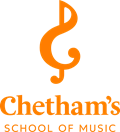Julian Jacobson

Biographical Info
One of Britain’s most creative and distinctive pianists, Julian Jacobson is acclaimed for the vitality, colour and insight he brings to his enormous repertoire ranging across all styles and periods. In a career spanning five decades he has performed extensively in more than 40 countries as well as maintaining an intensive UK concert and recording schedule. His 70th birthday in 2017 was marked by concerts in London and Paris where he performed the “War Trilogy” of Prokofiev (sonatas 6, 7 and 8) together with sonatas by Schubert and Beethoven, to critical acclaim.
Julian Jacobson was born in Peebles, Scotland to parents who were both distinguished musicians: his father Maurice Jacobson had some piano lessons with Busoni while his mother, pianist and composer Margaret Lyell, studied in Berlin with Else Krause, daughter of Liszt’s pupil Martin Krause. Julian studied in London from the age of seven with Lamar Crowson (piano) and Arthur Benjamin (composition), and had four songs published by the age of nine. Further studies at the Royal College of Music and Queen’s College Oxford were supplemented by a period as the inaugural pianist in the National Youth Jazz Orchestra, as well as lessons from the great Hungarian pianist Louis Kentner.
He made his London debut at the Purcell Room in 1974, followed immediately by the first of five appearances in the Park Lane Group’s annual Young Artists series and his Wigmore Hall debut as both solo recitalist and chamber musician. During the 1980s he established himself as a fine duo and ensemble pianist, partnering artists such as Zara Nelsova, Sandor Vegh, Ivry Gitlis, Lydia Mordkovitch, David Geringas, Christian Lindberg and Manuela Wiesler as well as many leading UK instrumentalists including Nigel Kennedy, Steven Isserlis, Moray Welsh, Colin Carr, Alexander Baillie and Philippa Davies.
Jacobson’s appointment in 1992 as Head of Keyboard Studies at the Royal Welsh College of Music and Drama led to an increasing concentration on solo work. In 1994 he embarked on his first cycle of the complete 32 Beethoven sonatas; he has now presented the cycle ten times. Three of these were “marathon” performances where he performed the entire cycle from memory in a single day – only the second pianist to attempt this. His 2003 marathon at St James’s Church Piccadilly, London, raised over £6000 for WaterAid while his 2013 marathon at the celebrated St Martin-in-the-Fields was streamed worldwide and attracted huge media coverage and rave reviews: he is planning an “anniversary” marathon for October 2022. Since 2014 he is Chairman of the Beethoven Piano Society of Europe where he is responsible for organising many concerts, competitions and other events for young players.
Julian Jacobson has performed as soloist with orchestras including the London Symphony, BBC Symphony and City of Birmingham Symphony, the English Chamber Orchestra, London Mozart Players, London Sinfonietta, Bournemouth Sinfonietta, Bucharest Philharmonic, Icelandic Symphony Orchestra and Royal Omani Symphony Orchestra, with conductors such as Sir Simon Rattle, Tamás Vásáry and Jane Glover. His many festival appearances as soloist and chamber musician include Edinburgh, Aldeburgh, Bath, Belfast Sonorities, Brighton, Cheltenham, Dartington, Glasgow, Huddersfield, Norwich and Prussia Cove on tour.
An ongoing commitment to contemporary music has led to many commissions and premieres. In 1987 he gave the critically acclaimed UK premiere of Ligeti’s now famous Etudes Book One; a subsequent recording for BBC Radio 3 was highly praised by the composer. Composers who have written for him include Robert Saxton, Simon Bainbridge, Benedict Mason, Philip Cashian, Daryl Runswick, Keith Tippett, Charles Camilleri and Robert Keeley; Michael Nyman wrote the piano trio “Time Will Pronounce” for Julian’s ensemble the Trio of London.
A large and varied discography for labels including Meridian, Chandos, Hyperion, Decca Argo, BIS, Continuum, Metier and SOMM includes albums of Schumann, Dvorak and Balakirev, the complete sonatas of Weber, the Carnival of the Animals with the London Symphony Orchestra, Martinu’s “Sinfonietta Giocosa” with the Bournemouth Sinfonietta under Tamas Vasary, and violin and piano music by Enescu, Dvorak, Vaughan Williams, Fricker and Rawsthorne with Susanne Stanzeleit. His album “Classical Flute à la Jazz” with Judith Hall contains his own jazz waltz, “Waltz for Judy”. Other compositions include five film scores, including ‘To the Lighthouse’, ‘Hard Travelling’ and ‘We Think the World of You’. In ‘The Fourth Protocol’ he made a screen appearance as the conductor of the London Philharmonic Orchestra. More recently he has published highly acclaimed transcriptions for piano duet of Gershwin’s “An American in Paris” and Second Rhapsody, which he has recorded for SOMM Records with his duo partner Mariko Brown.
Julian Jacobson is currently a professor of piano and chamber music at the Royal College of Music and the Royal Birmingham Conservatoire, and Guest Professor at Xiamen University China. He was Artistic Director of the Paxos International Festival, Greece, from 1988 to 2004 and has given masterclasses in Germany, Paris, Budapest (Franz Liszt Academy), Spain, Sweden, USA, Canada, China, Hong Kong, Singapore, Malaysia, Australia, the Middle East, and on many occasions in Dartington. Always passionate about expanding his musical horizons, in the 2000s he added the Sprechstimme (recitation) role in Schoenberg’s “Pierrot Lunaire” to his repertoire, giving his fourth performance of it in October 2009 in Jacqueline du Pré Hall, Oxford.
